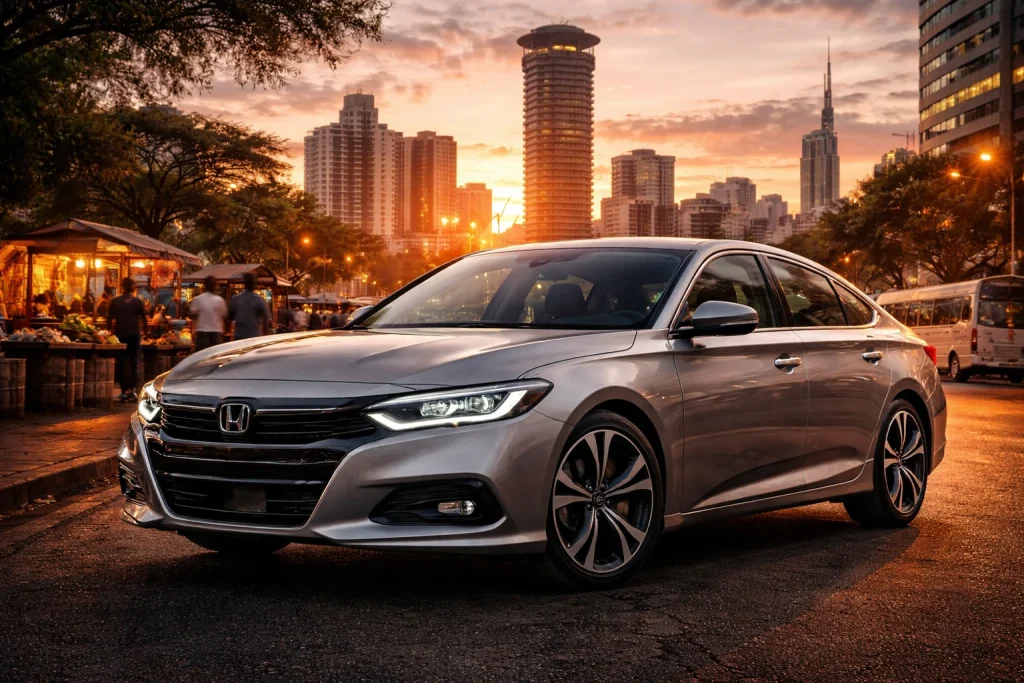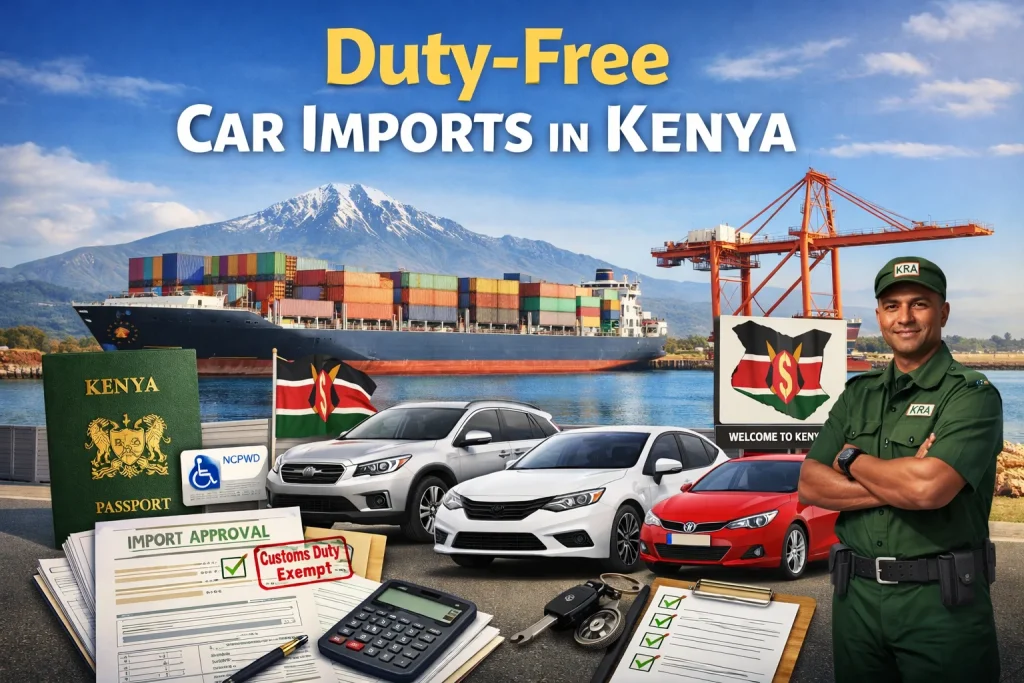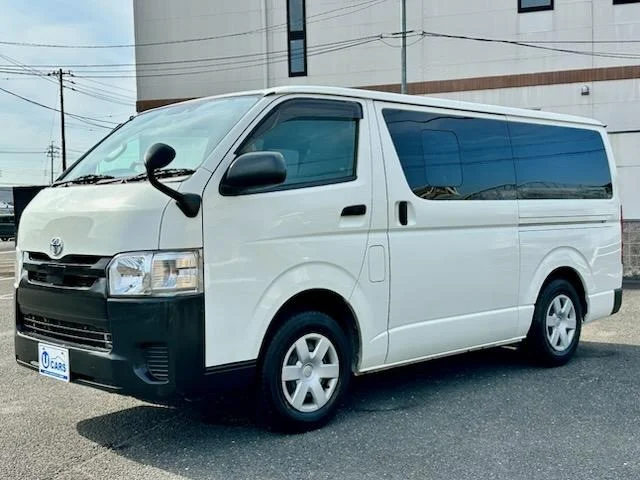Importing a car to Kenya is a smart move for those seeking better quality, features, and value for money.
But many Kenyans rush into car financing without understanding the full implications — resulting in unnecessary debt, delays, or worse, repossession. Whether you’re working with a Sacco, bank, or private lender.
At Cars Kenya, we’ve worked with hundreds of clients to help them finance and import their dream cars.
In the process, we’ve seen many buyers fall into avoidable traps.This article breaks down the top 5 financing mistakes Kenyan car buyers make, and more importantly, how you can avoid them.
1. Not Getting Pre-Approved Before Shopping
Most Kenyans start browsing for cars on sites like CarsKenya.co.ke before confirming how much they qualify for.
This leads to disappointment or delays once they find the car they want.
Solution:
Get pre-approved for a car loan or import financing before you start shopping. Know your budget, expected monthly repayment, and lender terms upfront.
Pro Tip: Nation Sacco and CarFin offer flexible import financing options with pre-approval in under 48 hours.
It’s tempting to go for that fully loaded Toyota Harrier or a Mercedes-Benz GLA, especially when the lender says “you qualify.” But overestimating your repayment ability can quickly lead to loan default and vehicle repossession.
Remember that owning a car also comes with hidden costs such as insurance, fuel, maintenance, and parking fees—especially in Nairobi.
What to Do Instead:
- Stick to the 20/4/10 car buying rule:
- 20% down payment
- 4-year maximum loan
- Monthly expenses (loan + insurance + fuel) ≤10% of your monthly income
- Create a monthly vehicle expense tracker before applying for a loan.
- Prioritize vehicles that balance comfort, fuel economy, and resale value.
2. Ignoring the Total Cost of Importation
One of the biggest financing mistakes is going with the first financing option offered, often from the dealership or importation agent.
Different lenders—including banks, SACCOs, microfinance institutions, and even private lenders—offer vastly different terms.
Some offer 0% down payment loans, while others may require a 20–30% deposit but have lower interest rates.
What to Do Instead:
- Get loan quotes from at least 3 different institutions (e.g., Co-op Bank, Absa, Sidian Bank, or Nation Sacco).
- Consider SACCO loans, which often have better rates and more flexible repayment terms.
- Check out financing partnerships with importers like Cars Kenya, who may offer structured import loan packages.
See CarsKenya’s Full Import Guide »
3. Choosing the Wrong Loan Terms
Many car buyers go for the longest repayment period possible just to reduce monthly payments.
But longer terms mean paying more interest in the end.
Solution:
Choose the shortest term you can comfortably afford. For instance, a 24-month loan may cost less overall than a 48-month term.
4. Failing to Read the Fine Print
From hidden charges to insurance requirements and early repayment penalties — many car buyers sign loan agreements without reading them carefully.
Solution:
Always read your car financing contract in full or have a professional review it. Look out for:
- Processing fees
- Interest rate type (fixed or reducing balance)
- Penalties for default or early repayment
5. Not Comparing Financing Options
Many Kenyan car buyers focus only on the monthly repayment amount and ignore the total cost of the loan over time. This is a major pitfall.
Most local and international lenders apply interest rates ranging from 13% to 20% per annum on reducing balance.
While the monthly repayment may seem manageable, the cumulative interest can add up to hundreds of thousands of shillings over 3–5 years.
What to Do Instead:
Ask for the total cost of credit from your lender, not just the monthly rate.
Solution:
Always compare at least 3 different financing options (Sacco, bank, and private lender). Compare:
Use online car loan calculators to model different repayment plans.
If possible, go for a shorter loan term with slightly higher monthly payments to save on interest in the long run.
- Interest rate
- Approval time
- Collateral requirement
- Customer support
When it comes to purchasing a vehicle—especially an imported car—financing is one of the most crucial decisions you’ll make.
Whether you’re buying a Toyota Noah, a Land Cruiser Prado, or a luxury BMW, understanding how vehicle financing works in Kenya can save you hundreds of thousands of shillings.
6. Not Preparing Proper Documentation
Delays in vehicle financing are often due to missing documents.
Some lenders require additional paperwork beyond the basics, such as bank statements, payslips, tax compliance certificates (KRA PIN), and vehicle proforma invoices.
Incomplete or disorganized paperwork leads to loan disapproval or extended waiting periods, which may also result in losing your preferred import unit due to stock turnover.
What to Do Instead:
Prepare a comprehensive financing folder that includes:
- 3–6 months’ bank statements
- Latest payslips (for employed individuals)
- Business records or financials (for self-employed)
- KRA PIN Certificate
- Copy of National ID/Passport
- Import car proforma invoice from a licensed dealer like Cars Kenya
- Utility bill (for proof of address)
7. Ignoring Hidden Fees and Charges
Many buyers focus solely on the interest rate, ignoring processing fees, legal charges, insurance premiums, and valuation fees.
Some banks charge up to Ksh 30,000–50,000 in non-refundable fees just to process your car loan.
In some cases, buyers also get tied into mandatory insurance packages, which are costlier than independent ones.
What to Do Instead:
- Ask for a full fee breakdown from the lender upfront.
- Check if insurance bundling is optional.
- Consider using importation companies like Cars Kenya that offer transparent, all-inclusive financing plans, often with partnerships that reduce fees.
Real-Life Example:
Jane, a Nairobi-based IT consultant, initially applied for a car loan through a local dealership for a 2018 Toyota Fielder priced at Ksh 1.45M.
The dealer was offering an interest rate of 16% with hidden fees totaling Ksh 85,000.
After speaking to Cars Kenya, Jane was able to:
- Import a 2019 Toyota Corolla Touring (successor to the Fielder)
- Secure financing through Nation SACCO at 13%
- Save over Ksh 300,000, including better specs and a free 1-year warranty
Conclusion: Be a Smart Buyer, Not a Costly One
Financing a car in Kenya doesn’t have to be confusing or expensive.
By avoiding these common financing mistakes, comparing multiple options, and partnering with transparent import experts like Cars Kenya, you can own your dream car without financial regret.
Car financing can make car ownership a reality for thousands of Kenyans — but only when done wisely.
Avoiding these 5 mistakes could save you hundreds of thousands in hidden costs, stress, and delays.
Bonus Tip: Consider Import Financing Over Local Purchase Loans
In recent years, import financing has become an attractive option for savvy car buyers in Kenya.
Instead of buying a used car locally—often at inflated prices—you can import a higher-grade vehicle at a lower overall cost, financed by your bank or SACCO.
Companies like Cars Kenya work with trusted suppliers in Japan, UK, and Thailand and offer import loan coordination with flexible terms.





